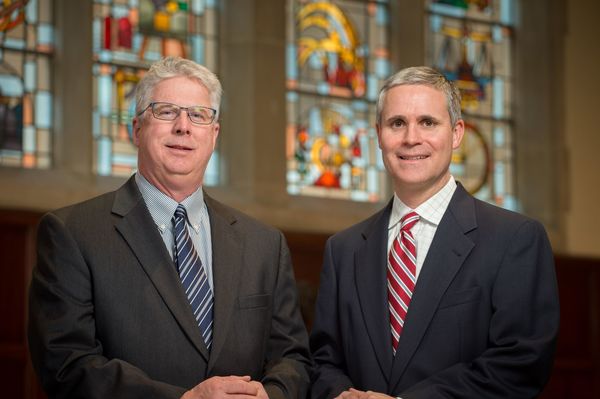When we wrote our founders’ letter for last fall’s edition of this newsletter, we had all been living with COVID long enough to have developed some new ways of coping and doing business—we carried masks in our pockets and carved out home offices—but not long enough to have answers to all the new questions cropping up: How can we best help people who have lost their jobs? What’s the best way to prevent evictions? How will schooling disruptions impact children long-term? How can we keep pace with meeting the needs caused by an ever-evolving pandemic?
Before COVID-19, we had already developed, in partnership with scholars at the University of Chicago, a new way of measuring the U.S. poverty rate in near-real time. When the pandemic hit, this new measurement allowed us to watch the unfolding economic impact and to share what we were learning about the hardships of American families with policymakers and others who could step in with support. Stories from our local service provider partners helped us further understand the shifting landscape that families were trying to build their futures on.

LEO’s social service provider partners felt the COVID crisis more keenly than any of us here at LEO ever could: flooded with record numbers of calls for help, coming up with new ways to safely provide crucial services, and making sure that the most vulnerable members of our society weren’t forgotten when the world shut down. They too could have scaled back, pressed pause, or closed up shop while they waited out the storm. But they didn’t. Their commitment to service and their devotion to their communities were too important.
To be sure, COVID changed many of LEO’s project designs and timelines. But over and over again we heard sentiments like these from our partners: We can’t stop learning. This work is too important. Now more than ever, we must understand what works to lift American families up. We are committed to building that evidence.
Between April 2020 and today, Catholic Social Services in Rapid City enrolled 80 people into its Uplifting Parents program so we could keep learning how to support single parents in completing their education. They are committed to helping parents realize a more stable future for themselves and their children, even when times are tough.
Helping Restore Ability not only launched its project—geared at understanding how to encourage home health caregivers to expand their knowledge and skills—during COVID, but ran an entire study and started sharing what we learned together with other health care providers. They are committed to quality training for home health caregivers—essential lifelines for low-income people who are elderly or living with a disability.
Practice Makes Perfect saw an opportunity to pivot its services to help kids overcome summer learning loss to focus specifically on learning how to support a generation of children suddenly thrust into virtual learning from home. They are committed to ensuring children get personal time with caring educators who can support their school success.
Our partners are bold. Our partners are brave. They stepped up, doubled down, and got creative.
It’s clear that despite the disruptions of the past 18 months, our provider partners aren’t stopping when it comes to building the evidence our country needs about what works to end poverty. And neither are we. Amid our own pivoting to online partner workshops and virtual presentations about our work, we spent the last year thinking about LEO’s future and the impact we want to have. The result is a new strategic plan that will guide our work and investment for the next 10 years.
A big part of that plan is building on the dissemination work that we started in earnest last fall. Our goal is for all our research to get beyond the typical academic endpoint of a journal publication, and into the hands of service providers, policymakers, and philanthropists who can use it to create effective programs and policies and guide resource allocation. We’ve already started making progress on this front with opportunities to testify before Congress and to contribute evidence from our studies to shape public policy. You’ll read more about these opportunities in this newsletter.
Other elements so crucial to our work also show up in our strategic plan. We have set our sights on growing the number of research projects we are engaged in with service provider partners, both new and existing, around the nation. We plan to create space for more people to join us in our work, most notably by expanding our undergraduate and graduate research experiences. Our goal is to use LEO’s mission and the platform of Notre Dame to help form the next generation of leaders and thinkers who will be solving some of our country’s most pressing problems.
We’ve learned a lot in the past 18 months—how to be nimble and resilient as projects change in the face of evolving external conditions, that it’s helpful to know that our partners’ interventions still work in a tumultuous world, and that our partners don’t back down.
But still, we are looking forward to post-pandemic life. COVID also taught us that there is no substitute for being on the ground with our provider partners—seeing where they work, getting to know their service teams, working through tricky problems face-to-face, and meeting the people they serve. Close working relationships with our partners is the keystone of our work. We don’t know any other way to be. To our provider partners: we can’t wait to get back to visiting you where you are and seeing your work in action. We’ll see you soon.
Bill & Jim